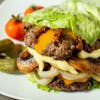Written by Cindy Rogers, RDH
How Inflammation Is Associated With Periodontal Disease
For starters, inflammation is right there in the name periodontitis. Periodontitis is an inflammatory disease initiated by oral microbial biofilm. This distinction implies that it is the host’s response to the biofilm that destroys the periodontium in the pathogenesis of the disease. Inflammation has been found to be associated with just about every health condition. Chronic inflammation is a common thread among many conditions like stroke, cancer, heart disease, obesity, arthritis, Alzheimer’s, and depression
Five Signs of Inflammation
1. Heat
2. Pain
3. Redness
4. Swelling
5. Loss of function
The Ketogenic Diet
If it is the host’s response to inflammation that is destroying the periodontium, then it is likely that we can control this response by following an anti-inflammatory diet. The ketogenic diet is a very effective anti-inflammatory diet.
The Ketogenic diet is known for being a low carb diet, but it is much more than a low carb diet and different than the Atkins Diet. The ketogenic diet is a high-fat, adequate-protein, and low carbohydrate diet.
When following this diet, your body is forced to burn fats rather than carbohydrates for energy. If there are few carbohydrates in the diet, the liver converts fats into fatty acids and ketone bodies. The ketones replace glucose as an energy source.
Foods that are high in carbohydrates will cause your body to produce glucose and insulin. Glucose is the easiest molecule for your body to convert to energy so it is chosen first over any other energy source. Insulin is produced to process the glucose in your bloodstream by taking it around the body. When glucose is being used as a primary energy, the fats you eat are not needed and are therefore stored around your body.
Ketosis is a natural process that the body uses to survive when food intake is low. Ketosis happens when you have lowered your intake of carbohydrates to the point that your body is forced to use fat as energy. When this happens, ketones are produced from the breakdown of fats in the liver.
Why Ketones Help Reduce Periodontitis
An anti-inflammatory diet works like a natural statin. With the release of ketones in the body, the body is in a state of ketosis. Ketosis is a desirable anti-inflammatory state. Ketone bodies reduce oxidative stress, which is very important because an excess production of free radicals is implicated as a promotor of most chronic inflammatory diseases.
Getting into the State of Ketosis
To get into ketosis, you must eat less than 50 grams of carbohydrates per day. Most carbohydrates should come from non-starchy vegetables, nuts, and dairy. Refined carbohydrates, starch, and fruit are off-limits with the exception of avocado. Berries and star fruit can be eaten in moderation once you have entered ketosis. It is recommended that you take supplements as well.
DO NOT EAT:
· Grains- wheat, corn, rice, cereal, etc.
· Sugar- honey, maple syrup, agave, etc.
· Fruit- oranges, apples, bananas, etc.
· Starchy vegetables- potatoes, yams, sweet potatoes, etc.
DO EAT:
· Meat- beef, chicken, lamb, pork, eggs, etc.
· Nuts and seeds- almonds, walnuts, macadamias, sunflower, etc.
· High fat dairy- cream, butter, hard cheese, etc.
· Leafy greens- kale, spinach, etc.
· Avocado
· Berries- raspberries, blackberries, other low glycemic berries
· Vegetables- above the ground such as cauliflower, broccoli, etc.
· Fats- coconut oil, olive oil, salad dressing, etc.
· Sweeteners- stevia, erythritol (try mixing together for a better taste)
· Anti-inflammatory supplements- magnesium, vitamin D, omega- 3 fatty acids, chromium, ginger, turmeric, and garlic




